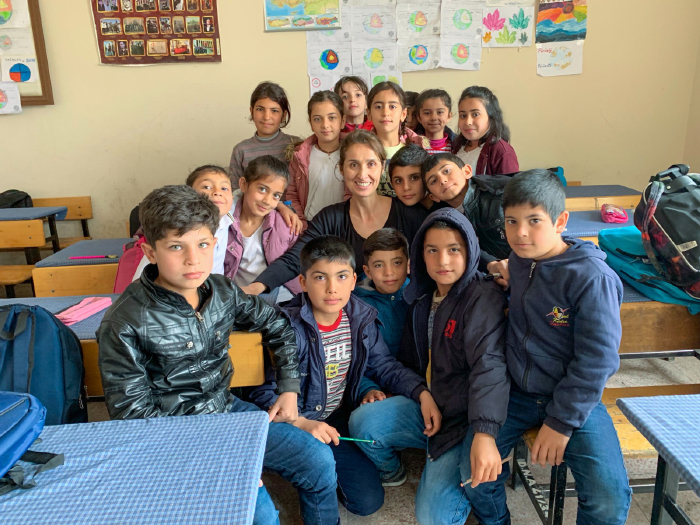The Abdul Latif Jameel Poverty Action Lab (J-PAL) has impacted the lives of more than 600 million people since its establishment in 2003. Launched at the Massachusetts Institute of Technology (MIT) with foundational support from Community Jameel, J-PAL works to reduce poverty by ensuring that policy is informed by scientific evidence through research, policy outreach and training.

J-PAL has pioneered the use of randomised control trials to isolate evidence in order to identify the real impact of policies. Randomised control trials work through the selection of a group of subjects with similar characteristics and dividing them into a test group which receives the intervention and a control group which does not, in order to measure the impact of the intervention.
The results from different evaluations can then be used to generate insights on human behaviour and institutions as well as measure the impact of specific programmes and policies. These policy insights can help inform decision-making in governments, NGOs, firms and funders by providing direction to decision-makers backed by scientific evidence.
This approach to poverty alleviation is spearheaded by J-PAL co-founders Abhijit Banerjee and Esther Duflo, who were awarded the Nobel Prize in Economics in 2019 together with their longtime associate Michael Kremer.
In 2023, J-PAL celebrates its 20th anniversary, having grown to seven regional offices with a network of over 294 affiliated researchers at universities across the globe. Since partnering with J-PAL in 2005, Community Jameel has supported J-PAL’s growth, including the launch of the European Social Inclusion Initiative with J-PAL Europe in 2017, and the newest J-PAL regional office, covering the Middle East and North Africa, in 2020 at the height of the COVID-19 pandemic.
The J-PAL MENA office is working across the region to scale up evidence-informed policymaking, including through the Egypt Impact Lab, a collaboration between J-PAL MENA and the Ministry of Planning and Economic Development in Egypt, launched in 2022 with support from Community Jameel, the Sawiris Foundation for Social Development and UNICEF Egypt. Among the projects supported by the Egypt Impact Lab is the ‘Decent life’ programme, which aims to alleviate poverty for 50 million people in Upper Egypt. The Egypt Impact Lab is part of J-PAL’s evidence to policy initiative, supported by Co-Impact and Community Jameel.
Fady Jameel, vice chairman of Community Jameel, said: “It is hard to comprehend that J-PAL, in only 20 years, has helped to improve the lives of over 600 million people. At Community Jameel, we are humbled to have partnered with J-PAL for so long, and we congratulate the entire J-PAL community on their impact in the world, born of hard work over two decades by J-PAL staff and researchers past and present.”
To mark the 20th anniversary, J-PAL Europe and Community Jameel will be hosting a two-day colloquium on June 22 and 23 at the Collège de France in Paris, entitled ‘Science and the fight against poverty: what progress has been made in 20 years and what are the prospects for the future?’ The colloquium forms part of J-PAL’s global advocacy work to identify innovative solutions to some of our most pressing challenges by presenting forward-looking global perspectives.
J-PAL’s work has enabled more than 1,640 randomised control trials carried out across 95 countries in 11 areas aiming to alleviate poverty, which have benefited more than 600 million people. J-PAL is named in honour of the late Abdul Latif Jameel, the father of Community Jameel founder and chairman, Mohammed Jameel KBE.


COMMENTS